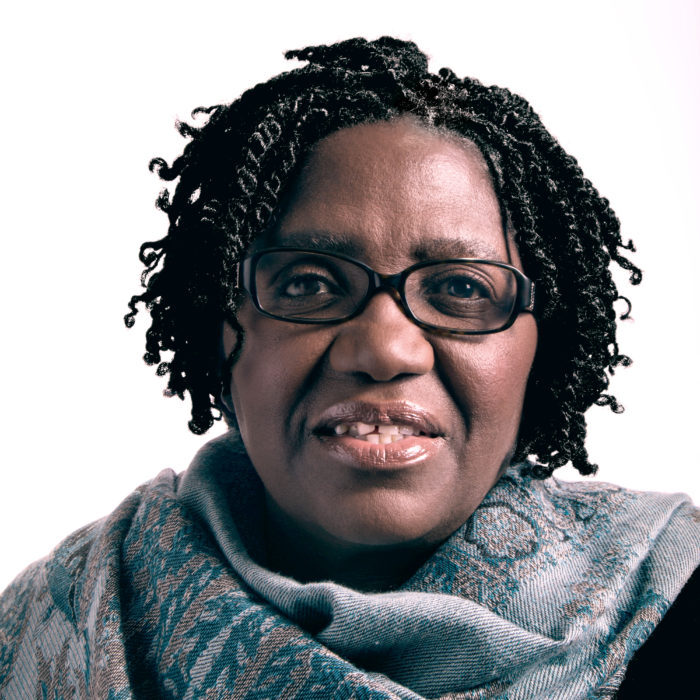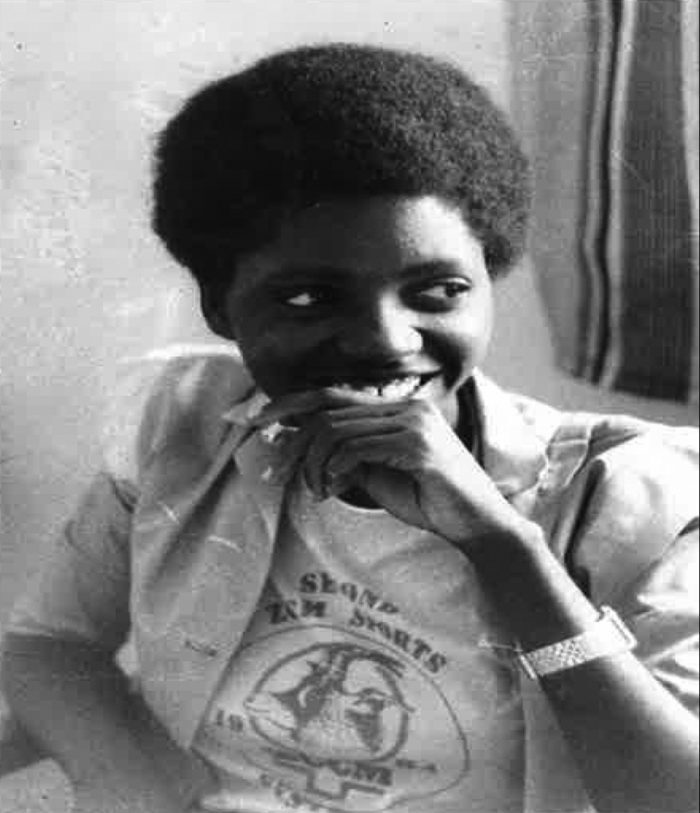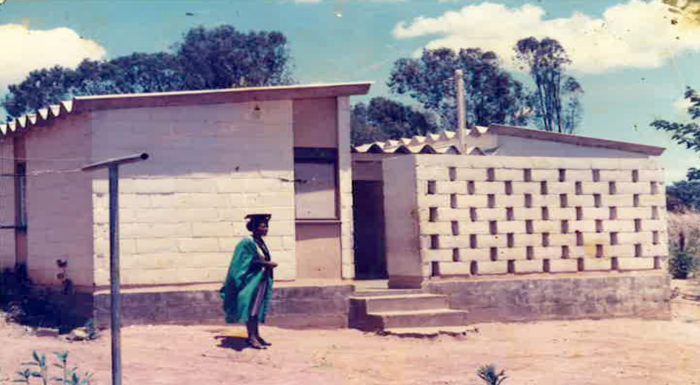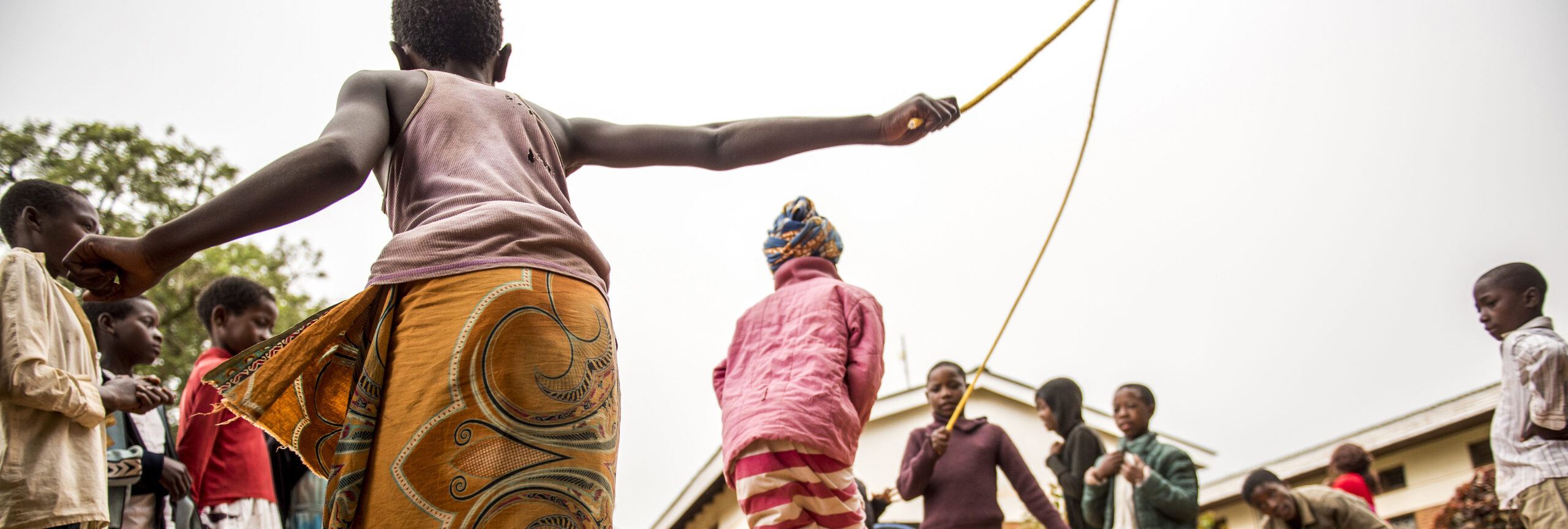
I grew up in Zambia—in Choma, a little town. The first time I heard about HIV was in 1986—when I was 27. I was riding on a bus and I saw an article in the newspaper about a new disease in the U.S. that was affecting gay people—and I remember thinking how strange and how far away.
HIV Happened to All of Us
I never really decided to get involved with the HIV epidemic. HIV just happened to me … and to all of us.
Back when I was graduating from college, we were all so excited. We were thinking that we’ll get married and get our houses and have our kids and go for holidays. But HIV/AIDS changed all that. From my graduating class of 12 social workers, we lost at least five to HIV.
In 1985, before I was even aware of HIV, 845 people died from AIDS-related causes in Zambia. By 2005, more than 95,000 people were dying each year. There was no treatment for HIV during the first two decades of the epidemic. Even if we had the money to put people on treatment, we didn’t have the drugs.
It was a very dark time.
There was no treatment for HIV during the first two decades of the epidemic…It was a very dark time.

A Community-based Response
Before the HIV epidemic hit, I was working as a hospital social worker with people living with leprosy. When the number of HIV diagnoses started to rise, I was the member of the team charged to come up with a response. We expected that we would be flooded with people. All of our hospital beds would be taken up with people living with HIV. Because there was no treatment in sight, we knew that an HIV diagnosis was terminal. We would just be counting time, waiting for someone to die.
So we brainstormed and came up with a home-based care and community counseling plan. When people were diagnosed, we would counsel them and release them to their homes. We would support the family, helping them with nursing skills and providing pastoral care and psychosocial support.
People were scared, and communities isolated people who contracted HIV. We had to go into the communities and explain how difficult it is to catch HIV—that you don’t have to fear contracting HIV from nursing care or feeding people.
We were able to engage the community and have a very strong response. Still, it was a very difficult time. I remember going out to do home-based care for seven or eight patients and discovering that three or four of them had died since the last visit.
Now We Have Time to Celebrate Life
Eventually, international assistance and affordable antiretroviral treatment reached Zambia. In 2001, the Elizabeth Glaser Pediatric AIDS Foundation (EGPAF) began working alongside the Zambia Ministry of Health and a host of other nongovernmental organizations. In 2004, HIV programs were significantly bolstered by the U.S. President’s Emergency Plan for AIDS Relief (PEPFAR).
PEPFAR has really meant the difference of life and death for all of us. Today, 75 percent of people living with HIV in Zambia are on HIV treatment.
In fact, I have HIV-positive siblings who are on antiretroviral drugs and are doing very well. They’re working. They’re raising their families. But if it had not been for the intervention of PEPFAR, I would have attended numerous funerals and been responsible for raising ten orphans.
Now we have time to celebrate life.

We Cannot Relax
I am a senior technical officer supporting EGPAF’s Community Engagement and Mobilization—which means working with the groups of people whom we serve through our health programs.
In my work, I often interact with children and adolescents living with HIV. As a mom, it’s difficult for me to think that these young people have to take medicine for the rest of their lives. But I’m also encouraged when I see the hope that these kids have. They don’t have a death sentence hanging over their heads. They have a life ahead of them. A normal life.
However, despite breathtaking progress, we cannot relax. In 2017, 16,000 people died from AIDS-related causes in Zambia. The number of new HIV infections in Zambia has not significantly declined in recent years. People still get infected with HIV every day, and there’s still stigma.
Community is the gamechanger
Even with all of the clinical breakthroughs, if we don‘t do our community work right—if we do not promote pro-health norms in communities, if people living with HIV do not take their medication—the breakthroughs will come to nothing.
Even if EGPAF were not paying me, I’d still do community engagement—because that’s where the answer lies.
Even if EGPAF were not paying me, I’d still do community engagement—because that’s where the answer lies.






